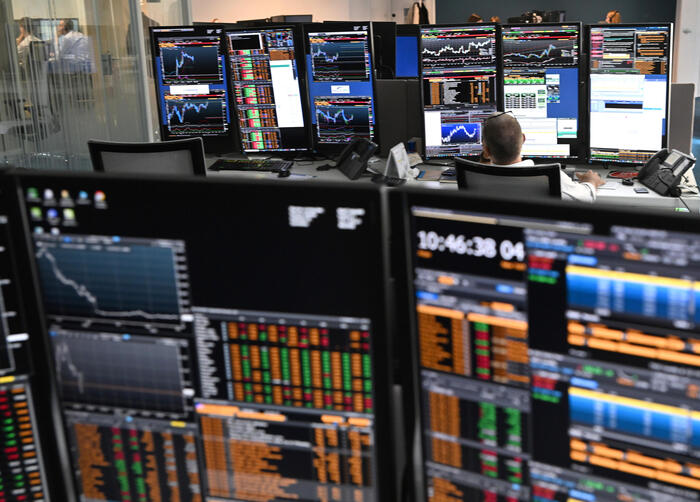The technology sector is going through
a new wave of rebranding.
As a result of the import stocks and the reinstatement of the 16% tariff on a large part of the notebooks,
the prices of these devices so far in March have increased by up to 67%
.
This is indicated by a survey by the consultancy MRT (Market, Research & Technology) that measured
the evolution of the prices of the 50 best-selling models
in the main retail chains.
Taken together,
"computer inflation" in the first three weeks averaged 13%
(nearly double the projected cost of living for the entire month).
, but
"the biggest rises were recorded in international brand products and the latest generation
, as opposed to laptops assembled in the country, which rose less or even fell," says Gastón García, MRT analyst.
In the sector they agree that the remarks were accentuated with the tightening of the obstacles to import.
And that
the situation worsened with the 16% tariff increase on finished notebooks
, which came into force on March 15, and affects global brands (Lenovo, Dell, HP, Asus and Acer), which
account for 90 % of the
market
The remaining 10% is shared by local assemblers, including Newsan, Mirgor, Exo, PC Arts (Banghó) and Positivo BGH.
The MRT report distinguishes two stages.
In the first, which runs from March 1 to 10, the price of an average laptop (imported and national)
went from $411,300 to $414,800
, which represents a 6% increase.
In the second -from 10 to 20- the value increased another 7% and
the ticket was around $441,000
.
However, throughout the period,
some cutting-edge models from Apple, HP, Lenovo and Asus increased their prices between 29% and 67%.
The one that increased the most was an Acer Aspire with a Ryzen processor, which until March 10 cost $189,000 and jumped to $263,500 after the tariff increase.
There are other notorious cases, such as a McBook Air (Apple), whose price increased 58% in the same period:
from $826,000 to $1.1 million
.
Several HP models account for increases of 40%
, divided into 2 parts.
MRT's analysis
is based on monitoring the prices published
by specialized chains
for around 500 different models of notebooks
of almost all brands.
It also compares values based on your processor, which is a shared component across many computers, and the most expensive.
The Ryzen, from AMD;
the M1 and M2, from Apple;
and the I Core, Pentium and Celeron, from Intel.
In March, the rise averaged 17%, says the report.
In the market, opinions are divided regarding the rise in tariffs.
However, they coincide in emphasizing that
what is most worrying is the delay in authorizing the entry of merchandise into the country
, whether they are components to assemble or finished computers.
"In one way or another, the issue of the tariff can be resolved in some way.
What has no solution is that you do not have a product
," lamented a senior executive of a multinational.
In any case, they explain, the stocks had been putting pressure on the prices of laptops since the middle of last year and the tariff increase complicated the panorama.
"In the last 11 months -stresses Novoa- the most notable jump in prices (in pesos) occurred
between June and July 2022 (average increase of 83%
), due to the brake on the payment of imports and the resignations of Martín Guzmán and Silvina Batakis".
The Government argues that the recent 16% increase in "imported" prices favors local integration and generates employment.
According to IDC, in 2022 almost 788,000 notebooks were imported.
"Of that total, 711,914 arrived finished and the rest were assembled in Argentina," says Sebastián Novoa, an analyst for that consultancy.
The participation of local brands never managed to match the leaders.
Without going any further, in 2012 -during Cristina Kirchner's second term-
she raised the tariff for finished notebooks from 16 to 35%
, with which national manufacturers came to represent between 33 and 40% of the Argentine market.
The Cambiemos government lowered it to 0%, in 2017, in force until last week.
Currently, the problem of the stocks complicates even the "educational" computers of the Conectar Igualdad program, which are financed with public funds.
Novoa explains that "to date, 1 million units, which were to be delivered this year, are still delayed."
look also
Notebooks: how much did they increase after the tariff hike
look also
Unusual: Apple records a spot in Buenos Aires but cannot bring its iPhones to the country









